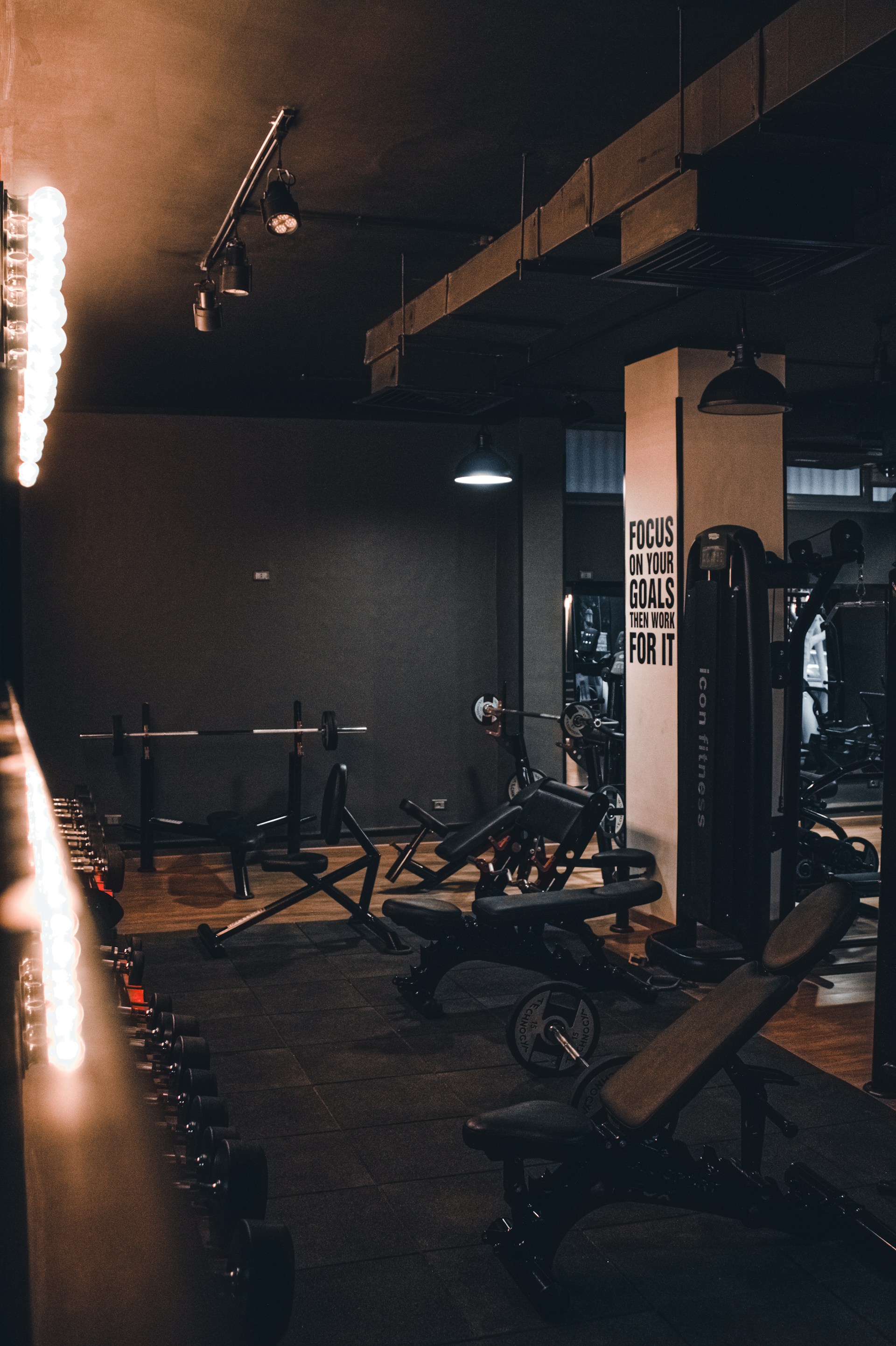
Top Gym Apps to use in 2025
The Best Gym Apps to use inn 2025 to get the best results the fastest
2/3/20255 min read
The Top 10 AI-Powered Gym Apps for 2025: Which One is Best for You? Revolutionising Your Fitness Journey
As we enter 2025, AI-powered gym apps have revolutionised the fitness industry. These intelligent applications offer personalised workout plans, real-time form corrections, and advanced progress tracking to help users achieve their fitness goals more effectively than ever before.
The market is brimming with options, each boasting unique features and capabilities. From virtual personal trainers to AI-driven nutrition planners, these apps cater to a wide range of fitness needs and preferences. Whether you're looking for a beginner friendly work out plan to start your fitness journey or your an experienced athlete aiming to optimise your performance, there's an AI gym app designed for you.
This article explores the top 10 AI-powered gym apps of 2025, comparing their features, user experiences, and overall effectiveness. We'll examine how these apps leverage artificial intelligence to provide tailored fitness solutions and help you determine which one aligns best with your individual goals and lifestyle.
Evaluating the Leading AI Gym Applications
AI-powered gym apps offer advanced features to enhance workout experiences. These applications leverage artificial intelligence to provide personalised coaching, track progress, and design tailored fitness routines.
Accuracy of AI Coaching
AI coaching in gym apps has made significant strides in accuracy. Most leading applications now use computer vision technology to analyse form and technique during exercises. This allows for real-time feedback and corrections, helping users perform movements safely and effectively.
Some apps employ machine learning algorithms to assess user performance over time. These systems can detect subtle improvements or regressions in form, strength, and endurance. The accuracy of AI coaching varies between apps, with some achieving up to 95% precision in movement recognition.
It's important to note that while AI coaching is highly advanced, it may not always match the expertise of a human trainer. Users should exercise caution and listen to their bodies, especially when trying new or complex movements.
Personalisation Features
Top AI gym apps excel in delivering personalised fitness experiences. These applications use data from wearable devices, user inputs, and performance metrics to create bespoke workout plans.
Many apps offer adaptive programming that adjusts difficulty levels based on user progress. This ensures that workouts remain challenging yet achievable, promoting consistent improvement.
Some key personalisation features include:
Custom meal plans based on dietary preferences and goals
Workout modifications for injuries or limitations
AI-generated motivational messages tailored to individual psychology
Personalised recovery recommendations
The effectiveness of these features often depends on the quality and quantity of data provided by the user. More frequent app usage typically results in more accurate personalisation.
Variety and Quality of Workouts
Leading AI gym apps boast extensive libraries of exercises and workout routines. Many offer a mix of strength training, cardio, flexibility, and mindfulness practices to cater to diverse fitness goals.
High-quality apps provide clear, professional video demonstrations for each exercise. Some incorporate augmented reality features, allowing users to see proper form overlaid on their own movements through their device's camera.
AI algorithms curate workout variety to prevent boredom and target different muscle groups effectively. This helps users maintain interest and achieve balanced fitness development.
Fitness enthusiasts appreciate apps that offer progressive overload, systematically increasing workout intensity over time. The best applications strike a balance between variety and consistency, ensuring users can track progress while enjoying diverse routines.
User Experience and Interface Design
AI-powered gym apps prioritise intuitive designs and seamless integration with wearables to enhance the user experience. These features aim to make fitness tracking and workout planning effortless for users of all skill levels.
App Navigation and Accessibility
The top AI gym apps boast clean, user-friendly interfaces that allow for quick navigation between key features. Large, clearly labelled buttons and customisable dashboards help users access their preferred functions with ease. Colour-coded workout plans and progress trackers provide visual cues for quick comprehension.
Many apps offer voice commands and screen reader compatibility to improve accessibility for users with disabilities. Adaptive layouts ensure optimal viewing across various device sizes and orientations.
Some standout features include:
One-tap workout start buttons
Personalised home screens based on user preferences
Multi-language support
High-contrast modes for low-vision users
Integration with Wearable Technology
Seamless connectivity with popular fitness trackers and smartwatches is a hallmark of leading AI gym apps. This integration allows for real-time data syncing, providing users with accurate workout metrics and personalised insights.
Many apps leverage wearable sensors to offer:
Automatic exercise detection and logging
Heart rate-based training zones
Sleep quality analysis for recovery optimisation
Stress level monitoring to adjust workout intensity
Advanced apps use AI to interpret wearable data, offering tailored recommendations for workout adjustments and rest periods. Some even integrate with smart gym equipment, allowing users to control machines directly from their wearables.
Pricing and Subscription Models
AI-powered gym apps offer diverse pricing structures to cater to different user needs and budgets. These models range from free basic versions to premium subscriptions with advanced features.
Free vs Premium Offerings
Most AI gym apps provide free basic versions with limited features. These often include workout tracking, simple exercise libraries, and basic goal setting. Premium tiers unlock more advanced AI capabilities.
Paid subscriptions typically offer personalised workout plans, AI-powered form correction, and advanced progress tracking. Prices for premium plans range from £5 to £20 per month, with discounts for annual commitments.
Some apps use a freemium model, allowing users to access core features for free while charging for premium content or removing ads. This approach lets users test the app before committing to a paid plan.
Family and Group Plans
Many AI gym apps now offer family and group subscription options. These plans allow multiple users to access premium features at a discounted rate.
Family plans typically cover 2-6 household members and cost 50-70% less than individual subscriptions for each user. Some apps extend family pricing to non-related groups, such as friends or colleagues.
Group plans often target fitness classes, sports teams, or corporate wellness programmes. These subscriptions may include additional features like shared goals, group challenges, and team analytics.
Pricing for group plans varies widely based on the number of users and specific features included. Some apps offer custom enterprise solutions for large organisations, with bespoke pricing negotiated directly.
Privacy and Data Security Considerations
AI-powered gym apps collect vast amounts of personal data to provide personalised fitness recommendations. This includes workout history, biometric information, and sometimes location data. Users should carefully review each app's privacy policy before signing up.
Most top AI gym apps employ encryption to protect user data during transmission and storage. However, the level of security can vary between apps. Some offer additional features like two-factor authentication for enhanced account protection.
Data ownership is a crucial consideration. Users should check whether they retain rights to their fitness data and if they can easily export or delete it. Some apps may share anonymised data with third parties for research or marketing purposes.
Transparency about AI algorithms is another important factor. Users should look for apps that clearly explain how AI processes their data to generate recommendations. This helps users make informed decisions about sharing their information.
It's wise to regularly review app permissions on your device. Some AI gym apps may request access to features like your camera or microphone. Only grant permissions that are essential for the app's core functions.
Reputable AI gym apps typically adhere to data protection regulations like GDPR in the EU. However, users should be aware that standards may vary depending on the app's country of origin and operation
